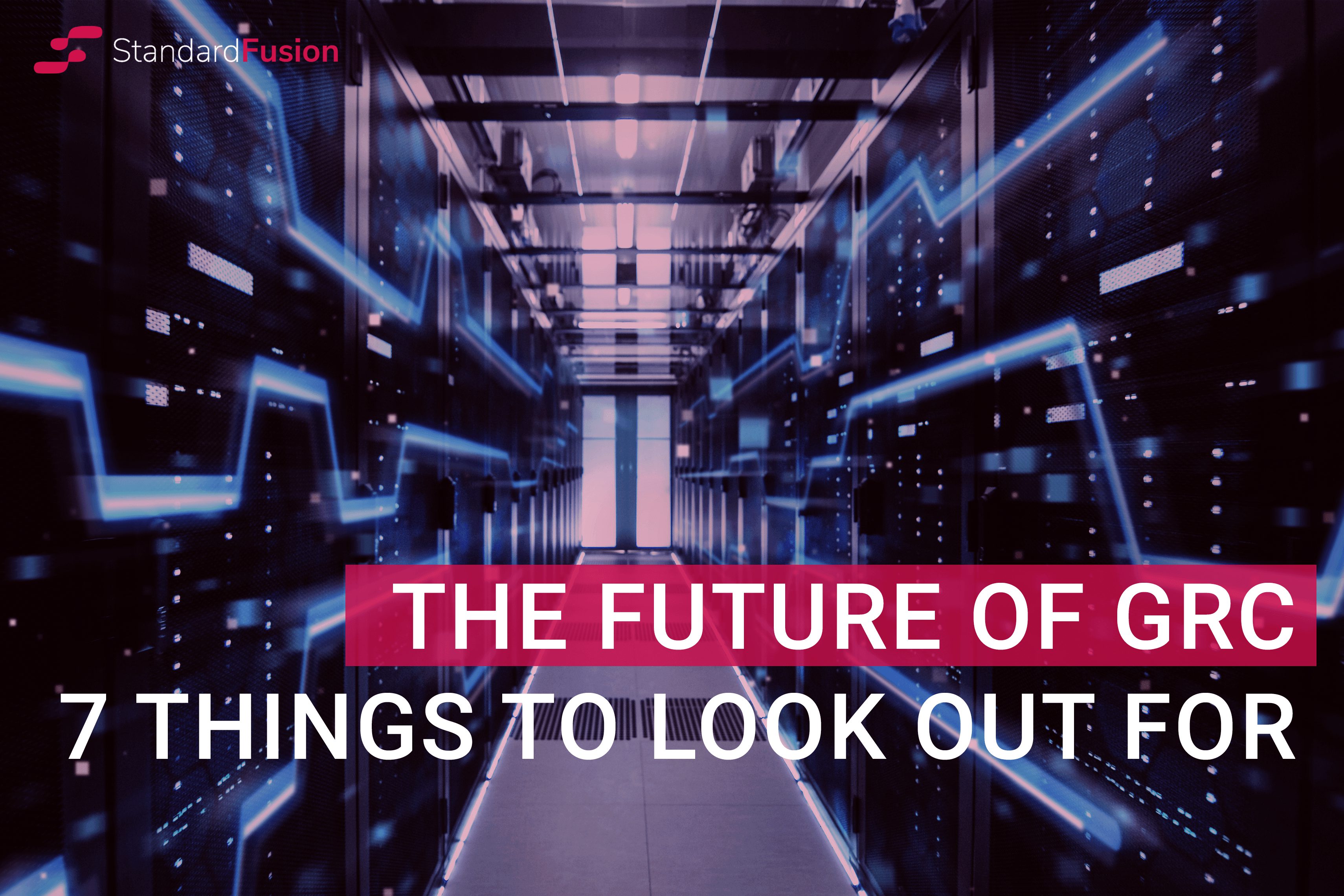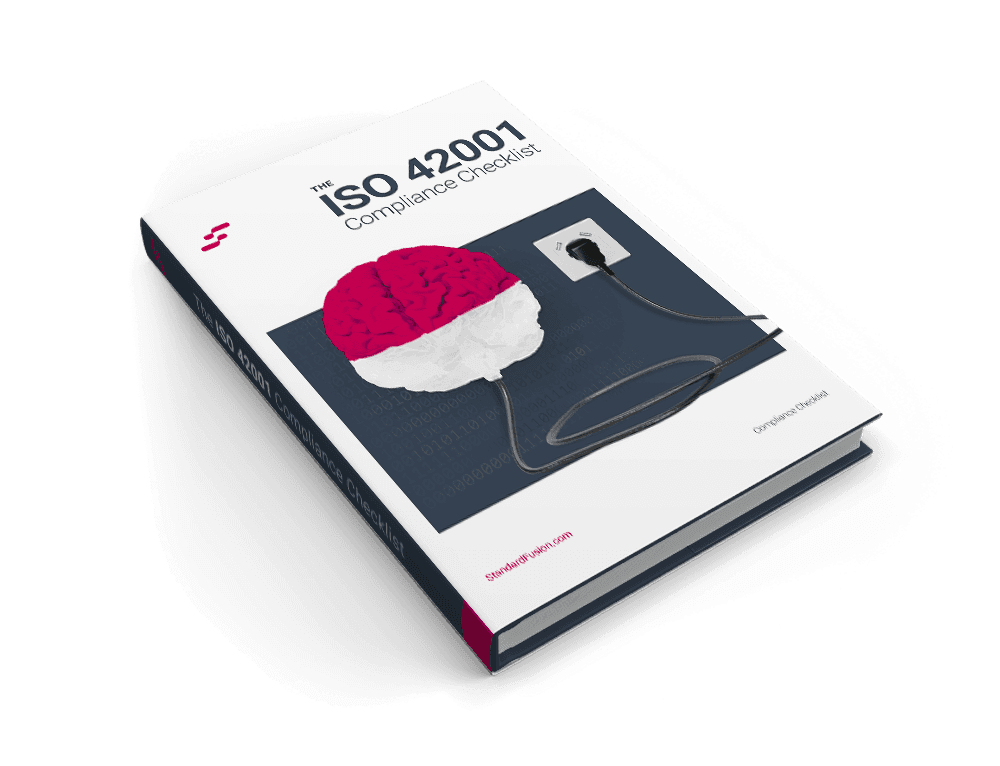Published on: Oct 11, 2019
The Future of GRC: 7 Features to Look Out For
Governance, Risk, and Compliance (GRC) has evolved and grown as companies continue to expand. With so many risks to manage, compliance standards and regulations to adhere to, the competitive landscape continues to change while the demand for centralized GRC software is on the rise. So what does the future of GRC look like? Will they continue to be reliable for the future needs of businesses or will they be phased out?
While specialized tools have played an essential role in helping organizations effectively manage their risk and compliance, they differ greatly from one provider to another. For instance, some may choose to only specialize in audit management or certain ISO standards, thereby missing the bigger picture.
For the modern business, GRC solutions have become essential to their success. By 2020, the GRC (or IRM) market is estimated to be worth $7.3 billion, up from $3.9 billion in 2015. What makes GRC software solutions so important and why do businesses continue to deploy them? Let's find out!
Spreadsheets Do Not Work
While it may have been feasible at the turn of the millenia to use Excel spreadsheets for GRC management, it is an arduous task to remain compliant with today's regulations. A spreadsheet is not a database and offers no protection for your data. Considering the basic principles of GDPR, companies using spreadsheets will struggle to stay compliant due to the lack of built-in security measures.
Additionally, spreadsheets do not fully support concurrent users like a dedicated GRC tool making it difficult to delegate and manage tasks. Spreadsheets are just not built for GRC management: lacking a holistic view, contain incomplete data and are not standardized.
Human Resources
The absence of a reliable GRC software could prove costly to your organization: either by hiring additional employees to fill the gap, or by no longer complying with existing standards and regulations. The availability of collated information from key sectors of your organization into a single dashboard enables your Human Resources to make more informed decisions.
GRC Software Streamlines Processes
When implemented successfully, a GRC tool can help any organization streamline and simplify its core business processes by collating them into a single platform. Allowing you to manage all your organizational controls as well as compliance questions from one simple dashboard.
Cyber Security
In terms of cybersecurity, a GRC platform can improve how organizations detect, prevent and respond to cyber threats. They achieve this by providing a single source of truth when it comes to managing cybersecurity risks and providing access to all vulnerability information within the software.
Failing an Audit is Not an Option
Failing an audit is not an option in today's business world. Failing can be very costly both financially and to the reputation of your organization. GRC software prevents failing an audit by turning audit-based activities into standardized processes. By doing so, a GRC software can reliably help your organization track the progress of one or multiple audits in a single space.
Top 7 Features to Look Out For in a GRC Software
Unless you're Nostradamus, the future can be quite unpredictable and businesses must prepare themselves in response to expected and unforeseen circumstances. In the past few years, we've seen tremendous innovation in the GRC industry and have no reason to believe it won't continue going forward.
The following examines seven key features you should look out for in a GRC software both now and in the not so distant future.
1. Centralized Controls
There are many benefits associated with having centralized business processes and policies (controls) when implementing a GRC strategy: it allows executives to have an overview of the complete list of controls relevant to the organization. They also promote consistency in an organization's approach to GRC and speeds up the collection of information and management. This is going to be an important feature in the future to fast-track decision making.
2. Support for Future Standards
It's all well and good that your GRC software can help you comply with existing standards and regulations, but as we've seen in recent times, things can change rapidly. A reliable GRC software should be able to easily adapt and provide support for future standards as they become available without hindering the existing processes
3. Automation
If your GRC software is unable to automate your workflows or reporting, it's most likely outdated. A reliable GRC software solution should be able to automate repeatable workflows to eliminate human error and improve decision making efficiency.
4. Scalability
Your GRC software should be able to grow in tandem with your organization. If you need to scale upwards or downwards, your GRC should continuously support rather than hinder your business. If you're currently experiencing too many limitations with your existing GRC management methods, it is almost certain that it will not be sufficient for your future business needs.
Integrating additional tools like Jira and Slack, have become key features to increase the functionality of GRC platforms. Having API access for future integration of third party tools will only become more valuable as companies grow.
5. Customizable Reporting
In this era of big data, the business world is moving in the direction of highly intuitive analytics and reporting. Your GRC software should support the creation of customizable, in-depth reports that suit your business needs and support better decision making.
6. Flexibility
A GRC software shouldn't force you to work in a certain way, especially when it doesn't suit your business challenges. An ideal software should be intuitive and easily customizable to your business processes.
7. Task Delegation
For GRC software to be relevant now and in the future, it must fully support task delegation across your organization's departments and also allow you to easily delegate tasks to the right person.
The many governance and compliance related issues and vast amount of risks that organizations face is only a reflection of the dynamic business world that exists today. Successful businesses continue to respond by deploying solutions that simplify these challenges. A well designed GRC tool offers an effective way of tracking and managing these business issues within a centralized platform.







